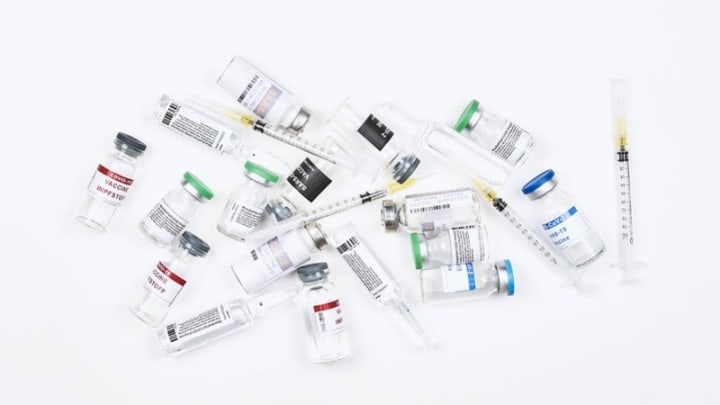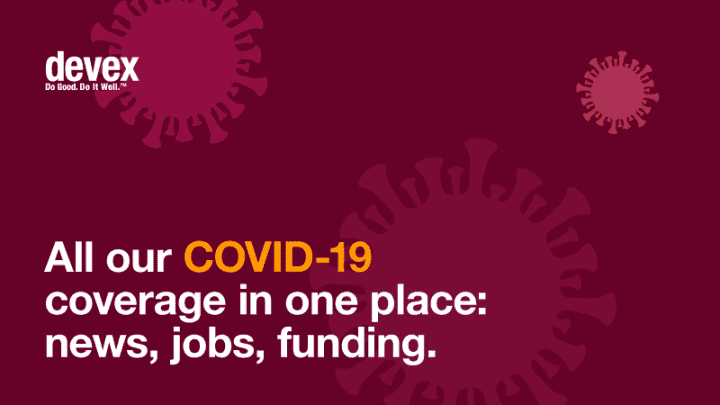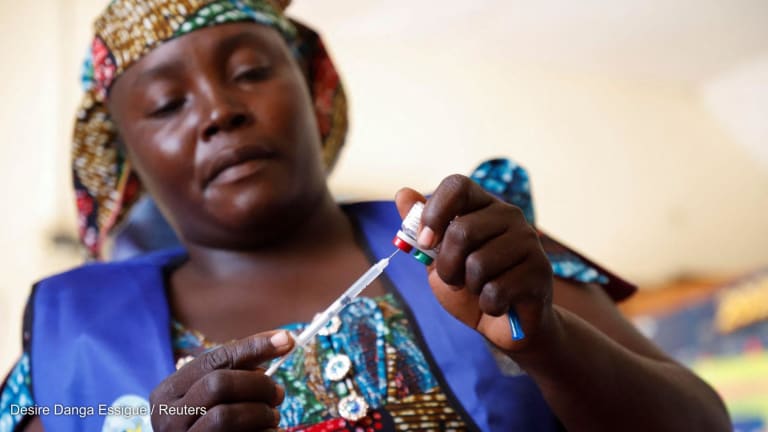
As high-income countries begin rolling out COVID-19 vaccinations, there are increased concerns that billions of people will not receive a vaccine this year, putting the global community at risk of prolonging this pandemic and its devastating knock-on effects.
Shortages in the supply of COVID-19 vaccines mean the vast majority of people in low-income and low-middle-income countries — including conflict- and crisis-affected contexts — will not be able to access a COVID-19 vaccine in 2021 and possibly for multiple years ahead. This is an unacceptable outcome.
COVAX — the global initiative to ensure rapid and equitable access to COVID-19 vaccines for all countries — aims to change this reality. It has entered deals on behalf of the 190 participating economies to make 2 billion vaccine doses available by the end of 2021.
The deals include vaccine candidates that are still in the clinical trial stage and awaiting regulatory approval. This, in addition to current production efforts already obligated for high-income countries, will leave limited capacity to produce enough doses to reach COVAX’s stated goal of 20% of the population across low- and low-middle-income countries.
This has been further compounded by “vaccine nationalism,” whereby wealthier countries such as the United States, the United Kingdom, Canada, and others have purchased enough doses for their populations, with some countries having enough for their entire populations several times over.
The pandemic and its aftershocks, however, will not end until everyone is accounted for and able to be vaccinated.
This requires equitable vaccine distribution across both high- and low-income countries, including for refugees and displaced people — the number of which exceeded 80 million in 2020, resulting in a tremendous amount of people who lack international protections and adequate access to health systems. As many of these populations can be mobile, additional risks of COVID-19 spread will occur unless they are included in vaccination efforts.
To ensure no one is left behind, investments must be made immediately to strengthen health systems. This includes shoring up supply chains, allocating sustainable and adequate financing, and empowering front-line and community health workers who can deliver care directly to those in need within their local settings.
To do this, high-income countries should increase their investments in both the COVAX Facility and broader humanitarian assistance, which remains every bit as essential, especially given the severity of COVID-19’s secondary impacts. As part of this, the International Rescue Committee, where I lead the health unit, is urging U.S. President-elect Joe Biden’s incoming administration to commit $20 billion in aid to fight COVID-19 globally and to share the country’s already purchased excess COVID-19 vaccine doses with the COVAX Facility.
High-income governments also have the opportunity to share coronavirus-related technology, know-how, and intellectual property, so that other countries can manufacture these lifesaving vaccines through their own facilities. As a global public good, COVID-19 vaccines should be made affordable for low-income countries and distributed in an equitable manner that prioritizes front-line health workers and high-risk populations, inclusive of refugees and displaced communities.
Lastly, strengthening the supply side and availability of vaccines must occur alongside efforts to build demand for vaccines. Every campaign must aim to create trust and involve local communities in planning processes.
The pandemic and its aftershocks ... will not end until everyone is accounted for and able to be vaccinated.
—Concerns also remain around the cold storage currently required for many of the COVID-19 vaccines. The Pfizer-BioNTech vaccine, for example, is unlikely to be used in fragile contexts because of its reliance on ultracold chain technology.
Cold chains, which are needed for the Moderna vaccine and other vaccine candidates, still require increased investments to strengthen health systems and supply chains. Without them, we will not be able to ensure that doses can effectively reach places affected by conflict or areas lacking electricity or specialized equipment.
While the global community focuses on the distribution of COVID-19 vaccines, there is also an urgent need to ensure these efforts are not made at the expense of continued investment in basic routine immunizations. There is a real threat of outbreaks of vaccine-preventable diseases such as measles because of coronavirus-related disruptions to routine immunization. This is especially true in fragile and conflict-affected contexts, which account for 44% of all children who miss out on access to basic vaccines.
Now is the time for a truly global effort that ensures everyone receives the lifesaving benefits of vaccination. Whether it’s children in need of basic immunizations for diseases such as measles or the billions of people anxiously awaiting a COVID-19 vaccine, pandemics and their effects will not end until everyone is accounted for.





